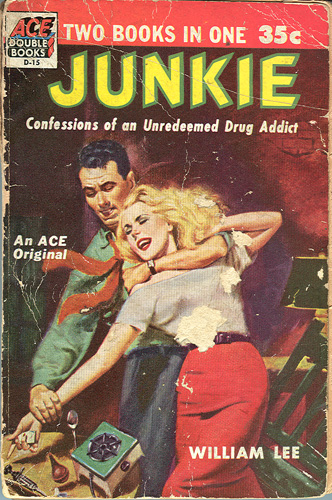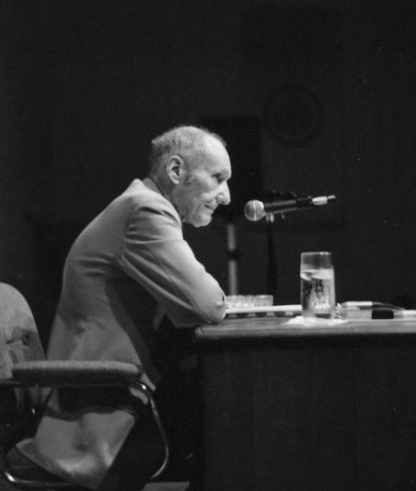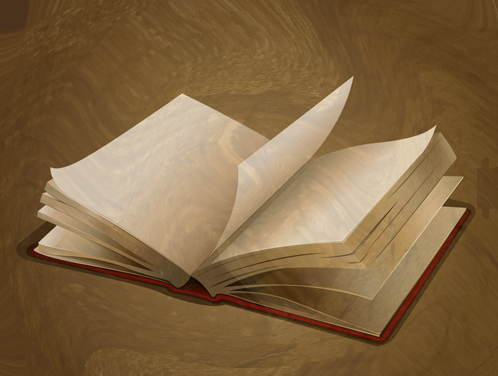James Valentine gets inside the mind of Breaking Bad Creator Vince Gilligan
VideoThe Digital Resource Library
Standard“The Digital Resource Library is a collection of readings, publications and surveys written on the developments in e-book production…Digital communication is shaping a new reading/viewing culture where text is no longer the main mode of description. Experimentations with digital book making provoke dialogue on self-publishing, digital writing/reading, multimedia curation etc.
This collection of electronic books has been selected from a pool of submissions sent
to DRL in response to the first open call for contributions of readings on digital book
making and publishing and/or experimentations with digital books as a medium. On
view in DRL is a small glimpse of a few explorations of multimedia curation,
documentation and e-publishing. Raising questions and gathering data on the
changes occurring in the publishing industry and growing a curiosity towards the
development of multimedia curation as a practice.
—
Participating artists On view in DRL: La Société Anonyme, Mez Breeze, David
Goldenberg & Ioana Pioaru, Brendan Howell, Anna Jakupovic, ATTITUDE.,
Alessandro Ludovico, Bruno Mendonça, Tajender Kaur Sagoo, TiND artist group,
Mike Mandel and Chantal Zakari.”
#OscarSelfie: “Well, that didn’t take long.”
ImageWell, that didn’t take long. #oscarspic.twitter.com/irTlxT8dQ3
— Funny Or Die (@funnyordie) March 3, 2014
Kurt Vonnegut’s Rejected Master’s Thesis
ImageMeet @Pulpcurry
Standard@Pulpcurry, otherwise known as Andrew Nette, is a Melbourne crime writer, reviewer and “pulp scholar” (you love that term as much as we do, right?). His short fiction has appeared in a number of print and on-line publications, and his first novel, Ghost Money, was published in 2012.
We first encountered Andrew when he politely replied to our somewhat offhanded tweet regarding his latest #Overland article, “The Beat(en) Generation: What Inside LIewyn Davis says about how we live now”. After merely speed-reading the article, we mistakenly proceeded to ham-fistedly tweet some snark in Andrew’s general direction.
Instead of choosing to fire up the Internet rage machine, Andrew tweeted a more than civilised reply. Rather than going on the attack, he chose to engage in actual dialogue. Andrew went on to cement his “Good Guy Pulpcurry” rep by sending us a fabulous eyecandy cover of “Junkie” (found above). In this age of hyperoverreactionary knee-jerk responses, we say bravo, @Pulpcurry.
(“Junkie” Cover Credits: Ace Double Edition, 1953.)“Giving Back – Free Books at Bus Stops”
VideoHappy B’Day, Bill Burroughs…
QuoteThere is only one thing a writer can write about: what is in front of his senses at the moment of writing… I am a recording instrument… I do not presume to impose “story” “plot” “continuity”… Insofar as I succeed in Direct recording of certain areas of psychic process I may have limited function… I am not an entertainer…
– William S. Burroughs, Naked Lunch.
The Science of Storytelling
QuoteWhen we are being told a story, things change dramatically. Not only are the language processing parts in our brain activated, but any other area in our brain that we would use when experiencing the events of the story are too.
– Leo Widrich, The Science of Storytelling: Why Telling a Story is the Most Powerful Way to Activate Our Brains
Meet @Asher_Wolf
StandardThe Internet is my Gutenberg Bible, it is the sacred living body of communication that changed my life. (Asher Wolf)
With this tl;dr quote that sums up almost everything that follows, we’re thrilled-to-actual-(but not literal)-bits in announcing our very first #digitalwriters profile showcasing @Asher_Wolf.
By her own admission, Asher is “…rumoured to never sleep“. And really, it’s no wonder: Asher operates as an information activist, disruptive journalist, citizen technologist, blogger, single mum, and internaut (which we suspect is a cross between an internet junkie and a juggernaut?).
Asher runs her Twitter feed exactly as a true digitocentric (and yes, that term is completely made up) should – by constantly streaming crucial links containing up to the minute news updates and a generous smattering of life reveals. Asher also contributes to New Matilda and The Drum, is a regular columnist with The Guardian, and currently blogs at Medium. She is the founder of the International CryptoParty movement, an organisation promoting personal privacy and cryptography in over 60 cities around the world…
…but enough of her standard biographic blurb. Let’s hear from the woman herself about her work, life, and the complex juggling manoeuvres she deftly performs in order to produce her #digitalwriting:
Somewhere between picking up my first smart phone in 2009 and learning to use social media to try to explore 4Chan’s /b/, Anonymous, ProjectPM, and transparency movements like Wikileaks and now, I went from being called a “tweeter” to a “citizen journalist” and now to being a “journalist.” Strange days.
In the past I experienced a sense of impostor syndrome, particularly when writing about tech, security and international relations. Now I just shrug it off and look at the list of all the ways in which I am qualified to talk about those issues, particularly in regards to my academic background and personal experiences.
The slow shift into journalism while experiencing early motherhood has not been a bed of roses. There’s been kiddie tantrums when I’ve wanted to write stories, an iPad my son flung out a car window and toddler poo jokes in the background when I’m trying to look professional. My son is really an out-door lover and I’d rather find a cafe to sit in a corner with a coffee and use my laptop. We compromise to find bits of happiness for each other every day.
This piece on potential legislative changes to the right to protest and picket in Victoria was essentially written with my four year old son in-tow at a meeting at Trades Hall, surrounded by activists and unionists and lawyers. It was tough to write, because my concentration was split in 10 different directions. Just getting the notes down was a challenge.
I have [come] to accept that there are things I have absolutely no control over and just do my best. After I finish writing an article I sometimes look at and notice every little mistake. I get annoyed. And then I think about what it took just to get a sentence onto paper, and think “this has to be good enough for now.” I still always question my work, but not the effort I put in. Also: never read all the comments on your published articles unless you care what every cretin thinks. Reading the comments will not make you happy.
The hardest part I’ve experienced are structural limitations, like lack of access to affordable, quality childcare and the stereotypes that keep the status quo in place. When I see journalists interviewing the same little group of white male tech journalists over and over for comment (particularly in the tech sector) I’m not really very impressed at all.
I try my best to work around distraction, banging out articles while my son is asleep, writing pitches while my son is at kindergarten. I figure I’m also up against younger, better looking journalism graduates with a whole lot more time on their hands. I don’t have time and I don’t have a journalism degree, so I work all the harder.

![The Digital Resource Library at TownHouse Library, Cairo [via @MezBreezeDesign]](https://digitalwritersaus.wordpress.com/wp-content/uploads/2014/03/reading-room1.png?w=800)






You must be logged in to post a comment.